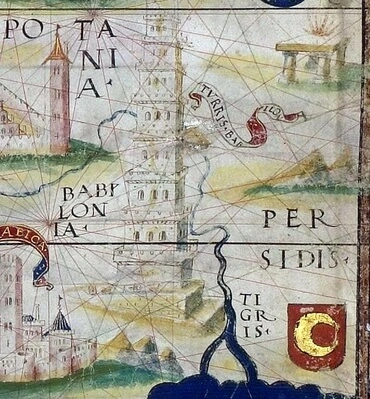1
LA parola che fu dal Signore indirizzata a Geremia, dopo che Nebuzaradan, capitano delle guardie, l’ebbe rimandato da Rama, quando lo prese. Or egli era legato di catene in mezzo della moltitudine di que’ di Gerusalemme, e di Giuda, ch’erano menati in cattività in Babilonia.
2
Il capitano delle guardie adunque prese Geremia, e gli disse: Il Signore Iddio tuo aveva pronunziato questo male contro a questo luogo.
3
Ed il Signore altresì l’ha fatto venire, ed ha fatto secondo ch’egli aveva parlato; perciocchè voi avete peccato contro al Signore, e non avete ubbidito alla sua voce; laonde questo vi è avvenuto.
4
Or al presente, ecco, io ti sciolgo oggi dalle catene, che tu hai in sulle mani; se ti piace di venir meco in Babilonia, vieni, ed io avrò cura di te; ma, se non ti aggrada di venir meco in Babilonia, rimantene; ecco, tutto il paese è al tuo comando; va’ dove ti parrà e piacerà.
5
E perciocchè Ghedalia, figliuolo di Ahicam, figliuolo di Safan, il quale il re di Babilonia ha costituito sopra le città di Giuda, non ritornerà ancora, ritorna tu a lui, e dimora con lui in mezzo del popolo; ovvero, va’ dovunque ti piacerà. E il capitano delle guardie gli diede provvisione per lo viaggio, ed un presente, e l’accomiatò.
6
Geremia adunque venne a Ghedalia, figliuolo di Ahicam, in Mispa, e dimorò con lui, in mezzo del popolo, ch’era restato nel paese.
7
Or tutti i capi della gente di guerra, ch’erano per la campagna, colla lor gente, avendo inteso che il re di Babilonia aveva costituito Ghedalia, figliuolo di Ahicam, sopra il paese, e che gli aveva dati in governo uomini, e donne, e piccoli fanciulli; e questi, de’ più poveri del paese, d’infra quelli che non erano stati menati in cattività in Babilonia;
8
vennero a Ghedalia, in Mispa, cioè: Ismaele, figliuolo di Netania; e Giohanan, e Gionatan, figliuoli di Carea; e Seraia, figliuolo di Tanhumet; e i figliuoli di Efai Netofatita; e Iezania, figliuolo d’un Maacatita, colla lor gente.
9
E Ghedalia, figliuolo di Ahicam, figliuolo di Safan, giurò loro, ed alla lor gente, dicendo: Non temiate di servire a’ Caldei; abitate nel paese, e servite al re di Babilonia, e sarà ben per voi.
10
E quant’è a me, ecco, io dimoro in Mispa, per presentarmi davanti a’ Caldei, che verranno a noi; ma voi ricogliete il vino, i frutti della state, e l’olio, e riponeteli ne’ vostri vaselli, ed abitate nelle vostre città che avete occupate.
11
Parimente ancora tutti i Giudei, che erano in Moab, e fra i figliuoli di Ammon, ed in Edom, e quelli ch’erano in qualunque altro paese, avendo inteso che il re di Babilonia aveva lasciato qualche rimanente a Giuda, e che aveva costituito sopra essi Ghedalia, figliuolo di Ahicam, figliuolo di Safan,
12
se ne ritornarono da tutti i luoghi, dove erano stati dispersi, e vennero nel paese di Giuda, a Ghedalia, in Mispa; e ricolsero vino, e frutti della state, in molto grande abbondanza.
13
Or Giohanan, figliuolo di Carea, e tutti i capi della gente di guerra, che erano per la campagna, vennero a Ghedalia, in Mispa;
14
e gli dissero: Sai tu bene, che Baalis, re de’ figliuoli di Ammon, ha mandato Ismaele, figliuolo di Netania, per percuoterti a morte? Ma Ghedalia, figliuolo di Ahicam, non credette loro.
15
Oltre a ciò, Giohanan, figliuolo di Carea, parlò di segreto a Ghedalia, in Mispa, dicendo: Deh! lascia che io vada, e percuota Ismaele, figliuolo di Netania, e niuno lo risaprà; perchè ti percuoterebbe egli a morte, laonde tutti i Giudei, che si son raccolti appresso di te sarebbero dispersi, e il rimanente di Giuda perirebbe?
16
E Ghedalia, figliuolo di Ahicam, disse a Giohanan, figliuolo di Carea: Non farlo; perciocchè tu parli falsamente contro ad Ismaele.







